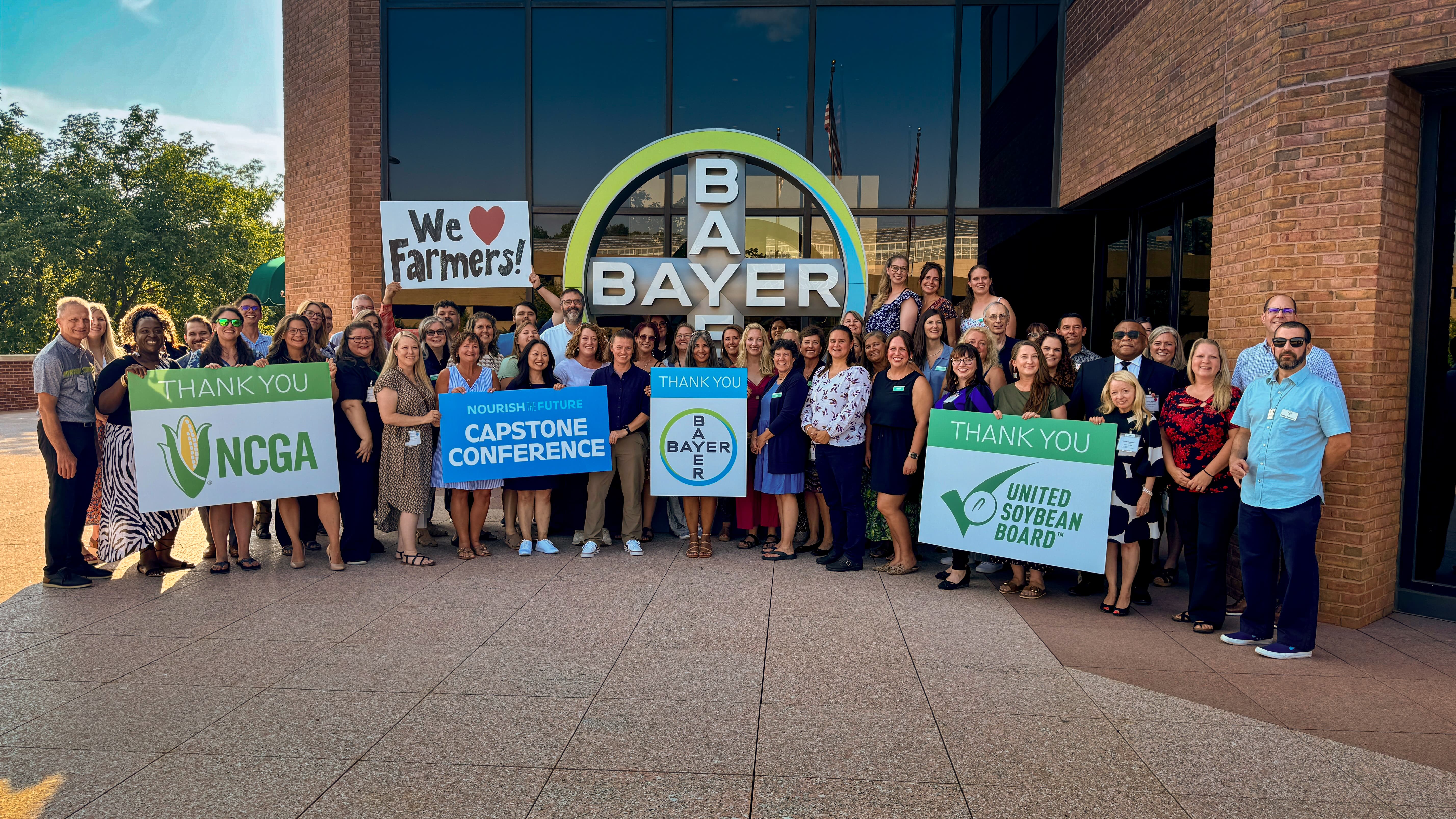Bayer partners with Nourish the Future to host STEM education leaders
CHESTERFIELD, MO.—Just ahead of the new school year, educators from 20 states convened at Bayer Crop Science in St. Louis to collaborate and advance their classroom practice. They represent a select cohort from Nourish the Future, a national education initiative developed by science teachers for science teachers, connecting students to modern agriculture.
This event included guided tours, pedagogical activities, and an expert panel discussion. Attendees spoke with Bayer representatives and learned more about their initiatives in education, sustainability, and innovation.
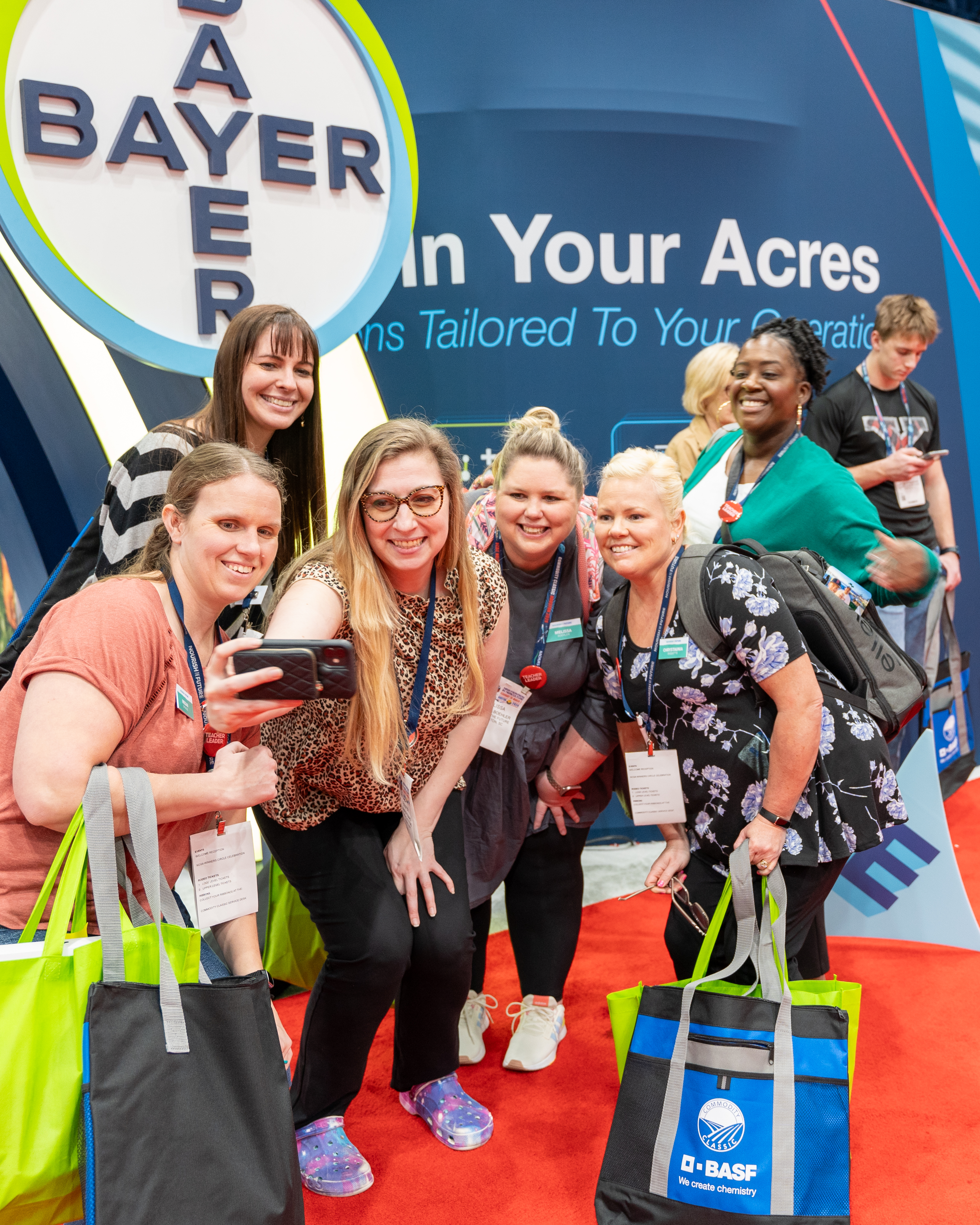
“My favorite moments were watching how much Bayer’s tour guides and experts loved engaging with the teacher leaders. I loved seeing sparkles in the eyes of the educators, knowing they were inspired and energized,” cited Meng Wang, PhD, MBA, Bayer Crop Science Transparency Lead.
Educators are turning to modern agriculture for impactful science teaching in response to an ever-growing global population and increasingly advanced technology.
“Teachers are changing science education for the better by using agriculture as the real-world context to teach science,” said Nourish the Future Director of Education, Gary Abud, Jr.
Reaching more than 600 educators and 450,000 students in its first five years, Nourish the Future offers free cutting-edge learning resources, professional training, and leadership development opportunities to empower educators and inspire students to see the possibilities of STEM careers in agriculture. The program is sponsored by the National Corn Growers Association and the United Soybean Board, with local support provided by state agriculture and education groups.
Among the dozens of resources provided by Nourish the Future, there are lessons on creating renewable fuels in the classroom, studying the plant anatomy of local crops, and opportunities for students to test for soil and water quality.
“Even though I teach in an ag state, our kids don’t know where our food comes from or what we do with the corn we grow,” said Melanie Pearlman, a high school science and math educator from Colorado. “I was encouraged at how engaged my students were with the Nourish the Future lessons.”
Pearlman and 38 STEM teachers from middle and high schools around the U.S. were selected to Nourish the Future’s annual Teacher Leader Community program. Throughout the year-long cohort, these elite educators advanced their expertise in the classroom and increased their influence as mentors to their colleagues—all while exploring solutions to industry problems and the connection between science content and potential careers for their students.
A capstone for this year’s Teacher Leader Community program, the event at Bayer Crop Science offered a unique first-hand opportunity to see classroom concepts applied to industry innovation. The experience was designed to foster a passion for agriculture among the participants, who in turn have the opportunity to spread their knowledge and industry connections to other science teachers and to the thousands of students they will reach in their careers.
Haley Lemle teaches grades 6-12 science in Michigan, and on the last day of the event she was energized as she reflected on the experience. “Seeing the research happening at Bayer was awesome. The other teachers and I had a ton of questions, and the scientists here were very engaging.”
“In addition to the scientific context, one thing that I’ll bring back to my students are the concrete examples of diverse STEM career opportunities I saw in the real world. From communications to engineering–we were able to see these in action– which is not a common thing for classroom teachers to have the opportunity to do,” Lemle added.
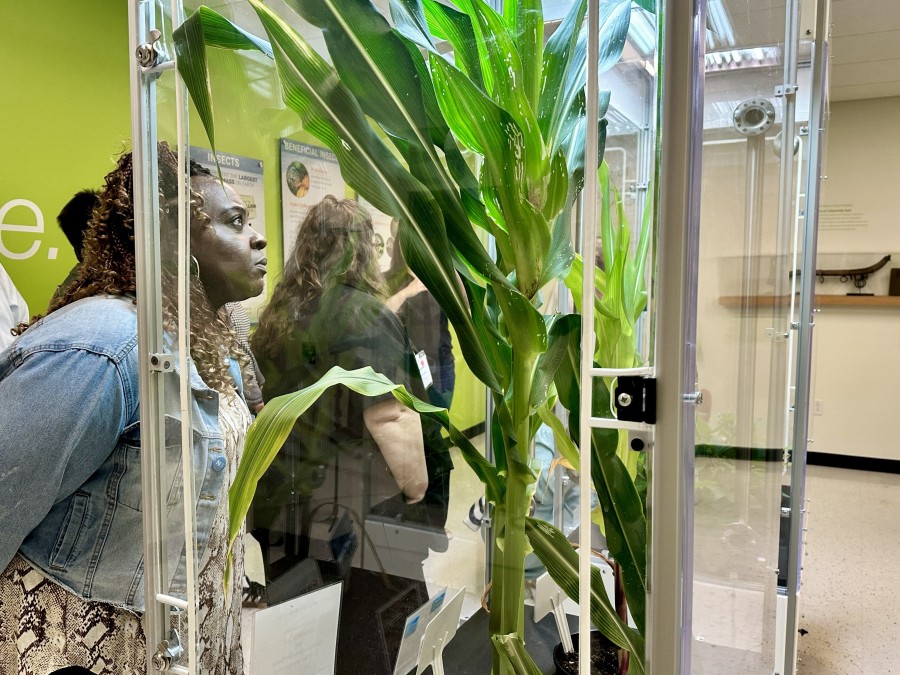
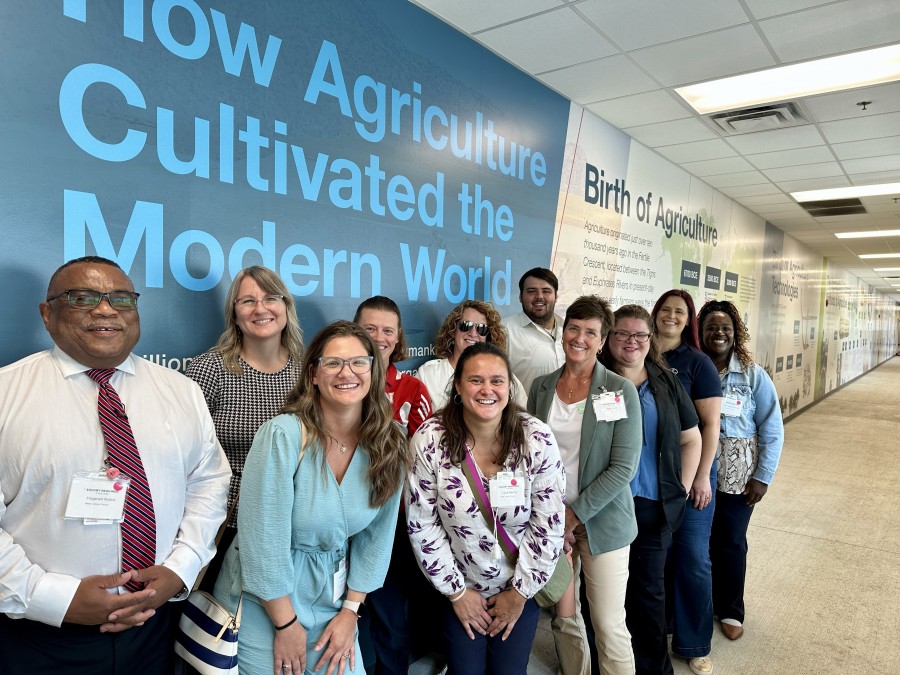
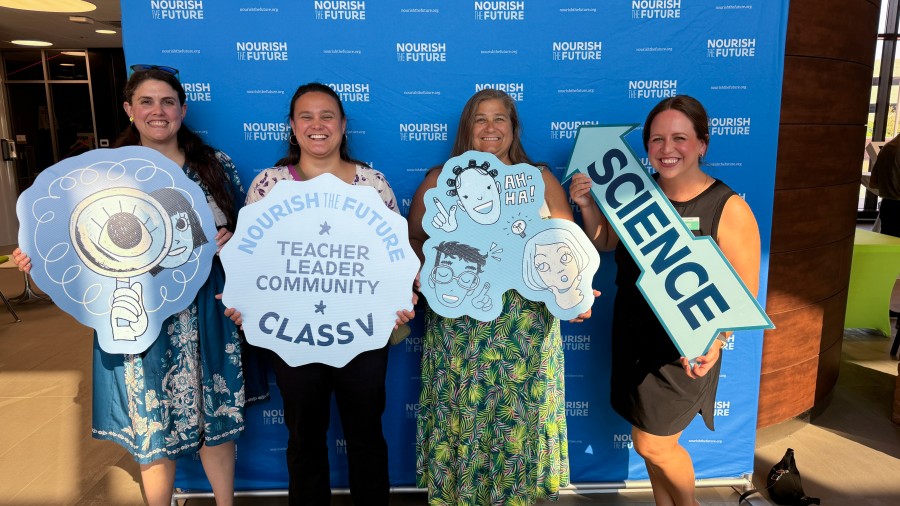
According to a study sponsored by Bayer, 80% of high school science teachers in the U.S. believe agricultural science is important for students, but only 22% incorporate agriculture into their lesson plans. The rest don’t have the tools or know-how.
“With the mission to equip and inspire a network of educators to foster critical thinking, connect students to modern agriculture, and provide sound science-based resources that meet teachers’ and students’ needs in the classroom, the Nourish the Future Teacher Leader program is ideal to partner with,” observed Wang.
Today, less than 2% of the U.S. population works in farming. While this reflects how much agricultural technologies have advanced and how much farming efficiency has increased, it also highlights the fact that people increasingly become disconnected from how their food is produced, leading to misconceptions about modern farming practices and sustainability.
“Integrating agriculture is vital as it fosters a deeper understanding of sustainability, food systems, and authentic problem-solving. Engaging with ag enthusiasts here has completely transformed my perspective on applied learning activities for my students, encouraging critical thinking and addressing everyday issues,” expressed Jennifer Donais, a STEM Coach from Massachusetts.
By supporting the science educators in the Teacher Leader Community and hosting an experiential professional learning event, Bayer is helping to shape the future of agricultural education and sustainability.
“Teachers bring back the learning from this experience and into their classrooms. They help other people understand the amazing science that is being done in agriculture,” said Cory Wightman, Vice President, Head of Innovation and Digital Communications at Bayer Crop Science.
By learning from research scientists and agriculture professionals at Bayer Crop Science, teachers will head back to school this year with cutting-edge context to bring to their students and to their professional networks.
“Students don’t need us lecturing in the front of the classroom, they need teachers putting them at the center of real-world explorations and teachable moments that change memorized facts into lifelong learning,” said Jessica Kurtz of New Jersey. “On the other side of teachers’ influence, you will see scientists rise with the skills to change our world for the better!”
